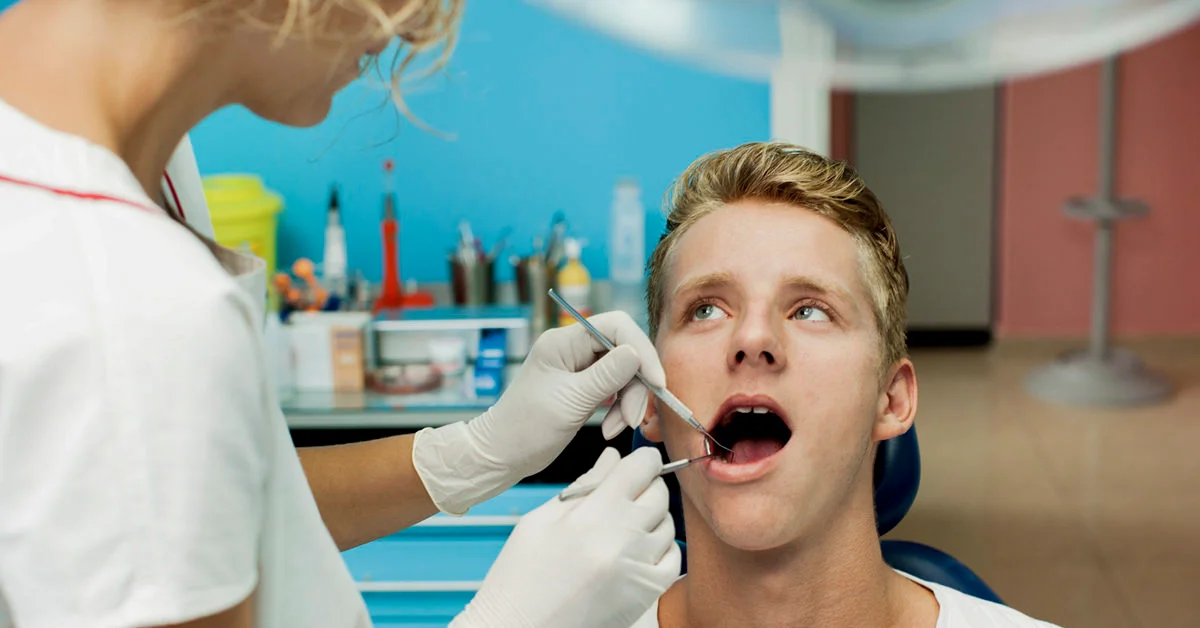Impacted teeth:
Tooth decay and cysts are more likely:
- When teeth do not receive the necessary cleaning, whether due to improper brushing or an unseen bacterial infection, They may progress to the stage of tooth decay or impacted teeth.
- Bacteria break down a tooth layer by layer, causing decay. This can eventually result in a pocket, or abscess, in the tooth.
- A cavity is frequently caused by a tooth infection.
- If the tooth is not brushed or flossed, it may develop more pinhole cavities. This allows more bacteria to enter, increasing the risk of larger health problems in the future.
- Another possible outcome of tooth decay is the complete loss of the affected tooth. If not detected and treated early, decay continues to eat away at the tooth until it can no longer hold on to its roots and falls out.
- If not treated properly, the infection, like other infections, can spread beyond the tooth and even outside the mouth.
- Tooth decay is typically characterised by a throbbing jaw, sensitivity, or bad breath.
- It can affect the sinuses if it is severe enough. A high fever is another possibility.
- Cysts form when fluid collects in a sac surrounding an erupting tooth. These sacs are usually harmless, but they can occasionally push against neighbouring teeth, bones, and gums, causing serious health problems.
Damage to Neighboring Teeth – Impacted teeth:
- Wisdom teeth appear after a person has had 28 adult teeth, which can cause overcrowding.
- Someone may have a beautiful smile and a healthy mouth. Their good fortune, however, does not exempt them from dealing with impacted wisdom teeth. We have no control over how our teeth will grow and develop.
- Wisdom teeth grow at various angles. Some teeth grow straight and do not interfere with other teeth. However, they frequently grow at an angle or even completely sideways.
- Wisdom teeth that grow crookedly can cause a variety of problems in the mouth, particularly when they push into the roots of neighbouring healthy teeth. If this occurs, you will need to treat both teeth.
- Imperfect wisdom teeth may cause orthodontic issues. The new teeth push and slide the old teeth out of place. Misalignment, depending on its severity, should be treated.
- Aside from improper contact, impacted wisdom teeth can cause damage to neighbouring teeth through the spread of harmful bacteria, which can lead to painful and, in some cases, life-threatening infections. The majority of such infections develop and spread silently.
- Teeth care becomes critical in this situation. In order to maintain good oral health, infections must be avoided and improper tooth alignment should be minimised.
- An unhealthy wisdom tooth is more dangerous than it appears. Vigilance is essential.
Post-Operative Care – Impacted Teeth:
Your wisdom teeth have been extracted. You emerge from your trance and begin your road to recovery. What comes next?
- Patients must take a few steps to ensure that their mouth heals properly and quickly.
- The risk of wisdom tooth extraction is minimal, but it is never completely eliminated.
- Your mouth is made up of bones and soft tissue. There are also some post-operative procedures to be aware of.
- Typically, blood clots form shortly after tooth extraction. The clotting process protects the remaining nerves and bone, which is an important step in the healing process.
- Clots can become dislodged, resulting in the formation of a “dry socket.” The most common complication following wisdom tooth extraction is dry socket. The condition, which often causes pain, exposes the nerves or bone to bacteria.
- The pain may gradually worsen until it can be felt in other parts of the face.
- Dry sockets can also cause a bad taste in the mouth until they heal.
- Follow your dentist’s post-op instructions to help prevent dry sockets. The plan includes avoiding strenuous exercise and smoking.
- Drink with a straw until the area has healed, eat soft foods, and take any medications as directed.
- Dentists can also use more direct methods to treat the removal site.
The Value of Wisdom Tooth Care – Impacted teeth:
- Although not everyone requires wisdom tooth extraction, it is an important consideration. If one or more wisdom teeth become impacted, health problems may follow.
- These issues include everything from pain to infection and decay.
- Some people do not require extraction. Those with larger mouths may have enough room for the teeth to grow without difficulty. They may emerge perfectly straight and (if properly cared for) healthy. Brushing and flossing should be done on a regular basis.
- Don’t put it off; consult with a dental professional about wisdom tooth care steps as soon as possible.
- Choosing to bear the pain will only aggravate the situation and lead to additional complications that will put a strain on both your body and your wallet.
- If possible, obtain a recommendation before the teeth begin to erupt.
- Recovery is often easier when a person is younger or when the teeth have not yet pushed through.
- Preventative measures and treatment can go a long way toward keeping a person healthy.
Contact Partha Dental if you are experiencing symptoms and would like advice on diagnosis or treatment. Our dentists will work with you to develop the best treatment plan for you.
Your nearest Partha Dental care clinic.


